23 Oct2020
By Jacqueline Rodriguez
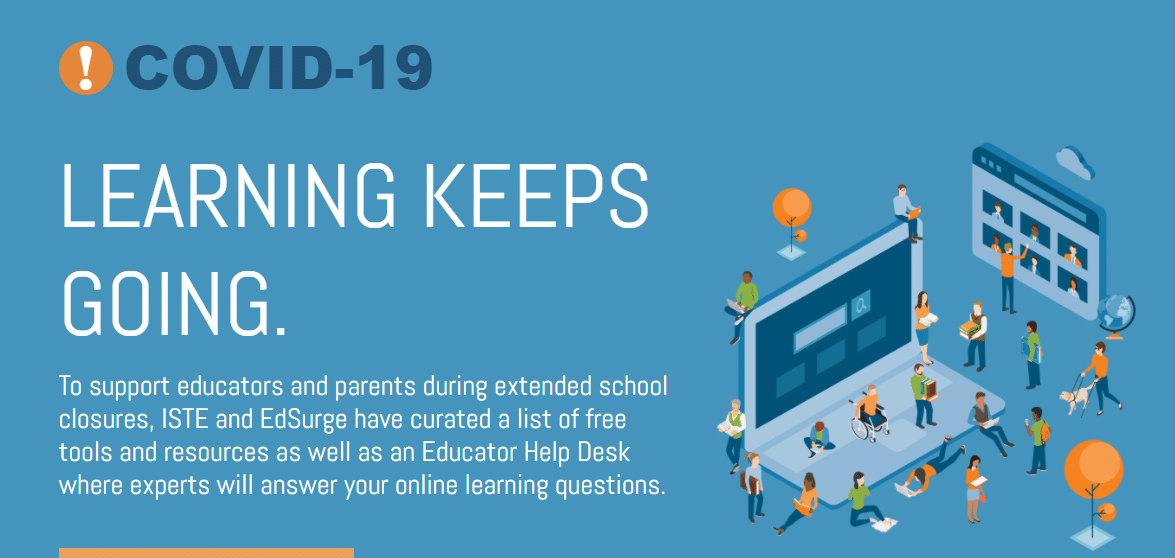 In early spring of 2020, AACTE joined ISTE’s LearningKeepsGoing Coalition. The Coalition subcommittees include Higher Education, of which I co-chair along with AACTE Innovation and Technology Committee Co-Chair David Slykhuis.
In early spring of 2020, AACTE joined ISTE’s LearningKeepsGoing Coalition. The Coalition subcommittees include Higher Education, of which I co-chair along with AACTE Innovation and Technology Committee Co-Chair David Slykhuis.
Each subcommittee developed resources that address the COVID19 pandemic in our nation’s public schools. The Coalition recently released two new resources for Institutions of Higher Education Educator Prep Programs and teacher candidates! The resources target different audiences. The student agency infographic is a resource for educator candidates and educator preparation faculty. As colleges and universities develop online course offerings, candidates are faced with learning how to access and benefit from online instruction. The infographic begins by amplifying five areas of student agency. Ten strategies guide students to advocate for online learning supports, use their own assets, and seek our mentors, to name a few. Students can also take an online learning readiness assessment to determine their preparedness for online instruction. Educator preparation faculty and staff are encouraged to disseminate this infographic to candidates who are learning online.
22 Oct2020
By AACTE
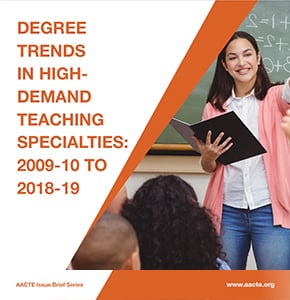
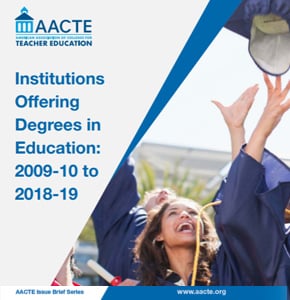
The American Association of Colleges for Teacher Education (AACTE) released today two new issue briefs, Institutions Offering Degrees in Education: 2009-10 to 2018-19 and Degree Trends in High-Demand Teaching Specialties: 2009-10 to 2018-19. The reports examine education trends through an analysis of the number of institutions awarding degrees in education and the imminent threat of increased teacher shortages , particularly in high-demand areas. The findings raise significant concerns about the nation’s future capacity to produce new teachers and other education professionals to meet the diverse needs of students, families, and communities.
The Institutions Offering Degrees in Education report describes the number of institutions awarding degrees in education from 2009-10 to 2018-19, and offers a table listing of institutions awarding any degree in education by state and institution type during this period. It reveals that, while the number of institutions offering degrees in education has been stable, the number of institutions with small programs, defined as awarding 30 or fewer degrees and certificates annually, rose by 21%. These institutions currently make up one-third of all colleges and universities awarding education degrees. Of critical importance is that the average number of education graduates across all institution types fell by 24% from 2009-10 to 2018-19.
16 Oct2020
By Ward Cummings
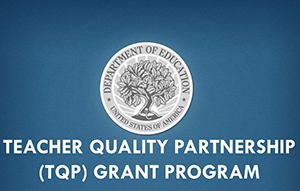 The Department of Education has awarded 23 grants administered as a of part of a pool of funding created to benefit programs including the Teaching Quality Partnership Program (TQP). Of the 10 grants awarded under Teacher Quality Partnerships program—totaling $7.3 million—six of the grantees are AACTE members.
The Department of Education has awarded 23 grants administered as a of part of a pool of funding created to benefit programs including the Teaching Quality Partnership Program (TQP). Of the 10 grants awarded under Teacher Quality Partnerships program—totaling $7.3 million—six of the grantees are AACTE members.
The 23 grants, totaling nearly $100 million, will promote educator development and training in alignment with a signature economic initiative of the Administration. The grants are designed to contribute to the enhancement of the professional development and effectiveness of teachers and principals. Each of the awards went to schools or nonprofits that connect in some way with economic Opportunity Zones to serve economically distressed or underserved communities around the country.
The Teacher Quality Partnership grant program, authorized in Title II of the Higher Education Act, is the only federal initiative designed to strengthen and reform educator preparation at institutions of higher education. Strongly supported by AACTE, TQP grants support the preparation of profession-ready teachers for high-need schools and high-need subject areas. Under this program, partnerships between institutions of higher education and high-need schools and districts compete for funding to develop master’s-level residency programs or to reform undergraduate preservice preparation programs.
13 Oct2020
By AACTE
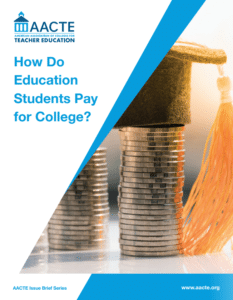 The American Association of Colleges for Teacher Education (AACTE) released today its latest issue brief, How Do Education Students Pay for College? The report provides colleges of education a closer look at the financial pressures impacting education students, by type of institution attended and by student race and ethnicity, through a detailed examination of the costs they face and the financial sources they use to pay those expenses. The findings reveal the financial challenges future educators will face and the financial disincentives to pursuing a teaching career, especially for students of color. It also supports the necessity of compensating educators fairly, in particular novice teachers who may be most burdened by student loan debt.
The American Association of Colleges for Teacher Education (AACTE) released today its latest issue brief, How Do Education Students Pay for College? The report provides colleges of education a closer look at the financial pressures impacting education students, by type of institution attended and by student race and ethnicity, through a detailed examination of the costs they face and the financial sources they use to pay those expenses. The findings reveal the financial challenges future educators will face and the financial disincentives to pursuing a teaching career, especially for students of color. It also supports the necessity of compensating educators fairly, in particular novice teachers who may be most burdened by student loan debt.
“The global pandemic has deepened the national teacher shortage crisis. It is critical now more than ever to recruit diverse, talented people into the teaching profession, which requires our nation’s leaders to revamp policies and practices that make college affordable and increase teacher compensation,” said Lynn M. Gangone, president and CEO of AACTE.
13 Oct2020
By Mary Murray
This article originally appeared in University Business and is reprinted with permission.

Photo by Nikolas Noonan on Unsplash
At the onset of the 2020-21 academic year, the educational system is in a coronavirus maze, wherein the turns are constantly changing, and the end seems out of sight. While state education departments, school districts and educator preparation programs (EPPs) are prepared—whether in class, online, or a hybrid of both—the pandemic reminds us how unpredictable the road ahead may be. Recently, some schools in the United States that reopened for in-class instruction have reversed their plans due to COVID-19 outbreaks.
07 Oct2020
By Jacqueline E. King, Ph.D.
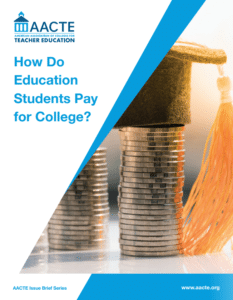 There is a growing body of research suggesting that concerns about compensation generally—and about being able to repay student loans in particular—are dissuading college students from choosing teaching as a career. These financial concerns have only been exacerbated by COVID-19 and its attendant financial crisis.
There is a growing body of research suggesting that concerns about compensation generally—and about being able to repay student loans in particular—are dissuading college students from choosing teaching as a career. These financial concerns have only been exacerbated by COVID-19 and its attendant financial crisis.
To help members better understand the financial pressures impacting education students, AACTE has released the new How Do Education Students Pay for College? issue brief that takes a detailed look at how students pursuing a bachelor’s degree in education pay for college, including the costs they face and the financial sources they tap to meet those expenses.
On Wednesday, October 21 from 3:00 – 4:00 p.m. ET, AACTE will host a webinar on this important topic. As the issue brief’s author, I will review the research findings, and I’ll be joined by AACTE consultant Jane West for a discussion of the implications of these findings for campus practice and federal policy. West will also share AACTE’s priorities for strengthening aid to future educators in federal appropriations bills as well as the reauthorization of the Higher Education Act.
The one-hour session will feature time for questions and discussion.
Register now.
02 Oct2020
By Tanner Brown
The following article features a podcast interview with AACTE’s Jacqueline Rodriguez addressing higher education’s strategies to ensure teacher and educator candidates access and benefit from the digital learning environment.
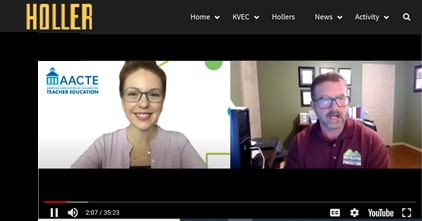
The Digitalachia Podcast hosted by Robert Brown of the Kentucky Valley Educational Cooperative (KVEC) welcomed Jacqueline Rodriquez, vice president of research, policy, and advocacy with the American Association of Colleges of Teacher Education (AACTE). The topic of discussion is higher education and incorporating virtual and blended learning models in the digital world.
22 Sep2020
By AACTE

Teamwork Team Collaboration Connection Togetherness Unity Concept
Today AACTE released its new report, Teaching in the Time of COVID-19: State Recommendations for Educator Preparation Programs and New Teachers. The 10 recommendations address critical state policy changes necessary to support innovative improvement in education during the global pandemic and beyond. Increased barriers to developing the educator workforce during the health crisis, coupled with the national teacher shortage, create demands for acute collaboration between educator preparation programs (EPPs), state education agencies, and PK-12 schools to reinvent systems for producing high-quality teachers to meet the growing needs of diverse learners.
AACTE reviewed and analyzed COVID-related state guidance to EPPs in pursuit of three goals: (1) to understand what states are doing to help prepare teachers for the classroom during this crisis, (2) to understand any extant trends in state guidance and (3), to identify recommendations for state leaders to enhance the support of new teachers impacted by program and policy disturbances stemming from the coronavirus crisis. From the analysis emerged recommendations that address changes to licensure and certification requirements, clinical experience pathways, and induction supports for novice teachers.
“Navigating the current crisis is complicated, to say the least, and the pandemic’s impact has a profound effect on many, including colleges of education and educator preparation programs,” said Lynn M. Gangone, Ed.D., AACTE president and CEO. “The circumstances of the pandemic open a window to think differently about our collective work. AACTE released this report at its State Leaders Institute today to provide our state chapter leaders with the latest research to inform their collaborations and conversations with state officials, PK-12 partners, and legislators.”
The report’s 10 recommendations are:
- In making licensure and certification waivers for teachers, states should make changes that are directly necessary because of the pandemic temporary, with a timeline for an ending that is clearly delineated, and transparent in that those who are granted certification as a result of waived requirements must be so classified, (e.g., “waiver-certification”).
- States should seek innovative opportunities to address ongoing challenges—such as lack of diversity in the profession and the need to modernize the processes of licensure and certification—as they consider licensure and certification revisions.
- Ensure candidates continue gaining experience teaching in a clinical setting with a mentor teacher, university supervisor, and continuous feedback.
- Encourage flexibility and collaboration between EPPs and school districts that ensure teacher candidates participate in clinical experiences online or in distance settings if PK-12 schools are not physically back in brick and mortar buildings.
- Encourage innovative approaches to clinical experiences including distributed learning models that employ team teaching in PK-12 settings, simulated classroom environments that allow candidates to approximate teaching, and financially supporting candidates through employment with the local school.
- Assess the needs of new teachers impacted by COVID-19 and identify areas for additional support.
- Require an induction action plan for new teachers describing the activities that must be completed or acquired for successful induction.
- Establish a mentorship program to equip new teachers with strategies to deliver high-quality instruction to diverse learners.
- Implement co-teaching for new teachers whose clinical experiences were fully or partially waived and teachers who have not passed exams for licensure and certification due to COVID-19.
- Partner with EPPs to provide professional development to ensure that new teachers possess the knowledge, skills, and dispositions to teach diverse students.
View the full report at AACTE’s website.
14 Sep2020
By Shelley B. Wepner and William Henk

The professional literature on the lifespan of education deans in their positions indicates that they serve in the role four to six years on average. We discovered a similar finding when we conducted a study through AACTE about education deans’ perceptions of essential characteristics for contributing to their success. More than two-thirds had been in their current position for five years or less (Wepner et al., in press). By the same token, though, we found that one-third of the education deans stayed in their positions much longer. These findings piqued our interest in the construct of longevity in the education deanship and inspired us to conduct a qualitative study, with the assistance of AACTE, of the factors contributing to the length of time education deans remain in office.
We believed that the construct deserved study because endurance in this demanding administrative capacity would presumably exert an impact on the welfare of schools and colleges of education. In a related vein, resilience as an education dean would seem to signify a reasonable indicator of sustained effectiveness, while brevity in the job might suggest the reverse. We also pursued the construct with the understanding that the roles and responsibilities of education deans, while resembling other academic deans, do present some markedly unique challenges that might affect longevity, and that there would be value for those in positions to affect education deans’ tenures positively, whether central administrators, peers, faculty or staff, to better understand the factors that promote longevity.
03 Aug2020
By AACTE

On behalf of the Board of Directors of the American Association of Colleges for Teacher Education (AACTE), President and CEO Lynn M. Gangone issued the following statement today regarding the Immigration and Customs Enforcement agency’s guidance that forces colleges and universities to reopen with in-person classes:
“AACTE is appalled by efforts to deny international students from attending U.S. colleges and universities on the basis of enrollment in online versus in-person classes. The U.S. Immigration and Customs Enforcement agency’s position prohibits new or initial students on foreign visas after March 9 from entering the country and enrolling in fully online courses, thus forcing them to take other measures, such as transferring to a school with in-person instruction this fall. This policy is both harmful to the health, safety, and overall well-being of the students and detrimental to their educational trajectories. Additionally, this action exacerbates the complex challenges institutions of higher education already face during this unprecedented time.
23 Jul2020
By Alexander Cuenca
 The following article is Part 2 of an article by AACTE member Alex Cuenca in which he highlights the tensions involved in continuing student teaching in the fall and shares a guidepost for educator preparation programs during the COVID-19 pandemic. Read Part 1.
The following article is Part 2 of an article by AACTE member Alex Cuenca in which he highlights the tensions involved in continuing student teaching in the fall and shares a guidepost for educator preparation programs during the COVID-19 pandemic. Read Part 1.
In my previous post, I explored how the belief that “experience” is the most authentic route for teacher learning creates an overreliance on field experiences and student teaching in teacher education programs. With wildly different state, local, and institutional responses to the COVID-19 crisis, teacher education programs are now left to navigate public policy on their own. Given the pedagogical power yielded to “experience” in teacher education, some programs (if allowed) will be tempted to continue with placements in fall during a health crisis because preparation without field experiences seems inconceivable. To be clear, the overriding concern ought to be for the health and wellbeing of our prospective teachers. Wondering whether we should place human bodies in a potentially dangerous situation during a global pandemic should not be a wondering at all. Yet, even if we suspend the recognition that schools are potentially perilous sites for the health of our teacher candidates, “experience” still fails as a sound rationale.
An additional layer of regulations based on the fear of spreading a virus in schools will create unnatural permutations to the already idiosyncratic nature of teaching and learning. The new questions raised by teaching in a pandemic are not just a logical variant of the typical uncertainties, but instead a novel unpredictability. Masks, social distancing, and prohibiting sharing will become new rules to enforce and police. Teaching and learning, which is dependent on social interaction will be socially distant. Teachers will have to divide their curricular and pedagogical planning and teaching between remote and face-to-face populations. And, whatever norms teachers construct in this uncertain environment will have to be immediately adjusted when schools intermittently close because of a positive COVID result. The uncertainty of schooling during a pandemic is perhaps best captured by Sarah Mulhern Gross, a New Jersey English teacher who has compiled over 350 questions that teachers have about teaching in the fall. Among this list are a series of questions pertinent to teacher education:
- If a preservice teacher is exposed to COVID-19 while teaching will they be able to get tested through the district or will they have to find their own means to do so?
- How will preservice teachers complete sections of the edTPA that require student collaboration?
- How will preservice and coopeting teachers maintain social distancing while working with each other?
- If a preservice teacher is forced into quarantine due to exposure could it delay the completion of their program?
- Will preservice teachers be encouraged to take sick days? Historically they risk losing credit if they have absences.
If experience is paramount, is an experience in a milieu of prodigious uncertainty what teacher education programs want to deliver in the fall?
20 Jul2020
By Jane E. West

This blog post is written by AACTE consultant Jane West and is intended to provide updated information. The views expressed in this post do not necessarily reflect the views of AACTE.
Action Expected in July on Next COVID Relief Bill: Education in the Crosshairs
Beginning next week, we expect to see the Senate take up the next COVID relief bill. The House has passed their version of the bill and Senate Democrats have introduced their version of the bill, so the next move is up Senate Leader Mitch McConnell (R-KY). His bill may be unveiled next week.
Education has become a high profile and contentious matter for this bill, as the president has determined that the economy cannot move forward unless schools are fully open in person so that parents and college employees (and workers in related businesses) can return to work in person. Multiple agendas are woven through this debate, which will become even more prominent as decisions are made about whether to apply conditions to any further COVID relief funding for education.
17 Jul2020
By Alexander Cuenca
The following article is Part 1 of an article by AACTE member Alexander Cuenca in which he highlights the tensions involved in continuing student teaching in the fall and shares a guidepost for educator preparation programs during the COVID-19 pandemic.
In this post, I explore how the unexamined inertia of “experience” in teacher education contributes to the hesitation of teacher education decision-makers to cancel field experiences and student teaching in the fall. Canceling field experiences and student teaching in the fall is the most responsible decision. Primarily, because even a basic understanding of the germ theory of disease during a pandemic should be enough of a rationale. However, because higher education is ensconced in the same neoliberal rationales that led to the premature opening of private and public enterprise over the last few months, teacher education programs must navigate public policy on their own. Of course, with all of the uncertainty that has been created by the response in the United States to COVID-19, I don’t pretend to know what is best for every single teacher education program. Field experiences are entangled in state licensure and certification regulations, institutional scheduling issues, and school and university partnership agreements. However, operating from the position that COVID-19 continues to pose a substantial risk to the health and well-being of students, teachers, school staff, and student teachers, I hope to provide pause for those who believe that field experiences and the student teaching experience must go on.
13 Jul2020
By Katrina Norfleet
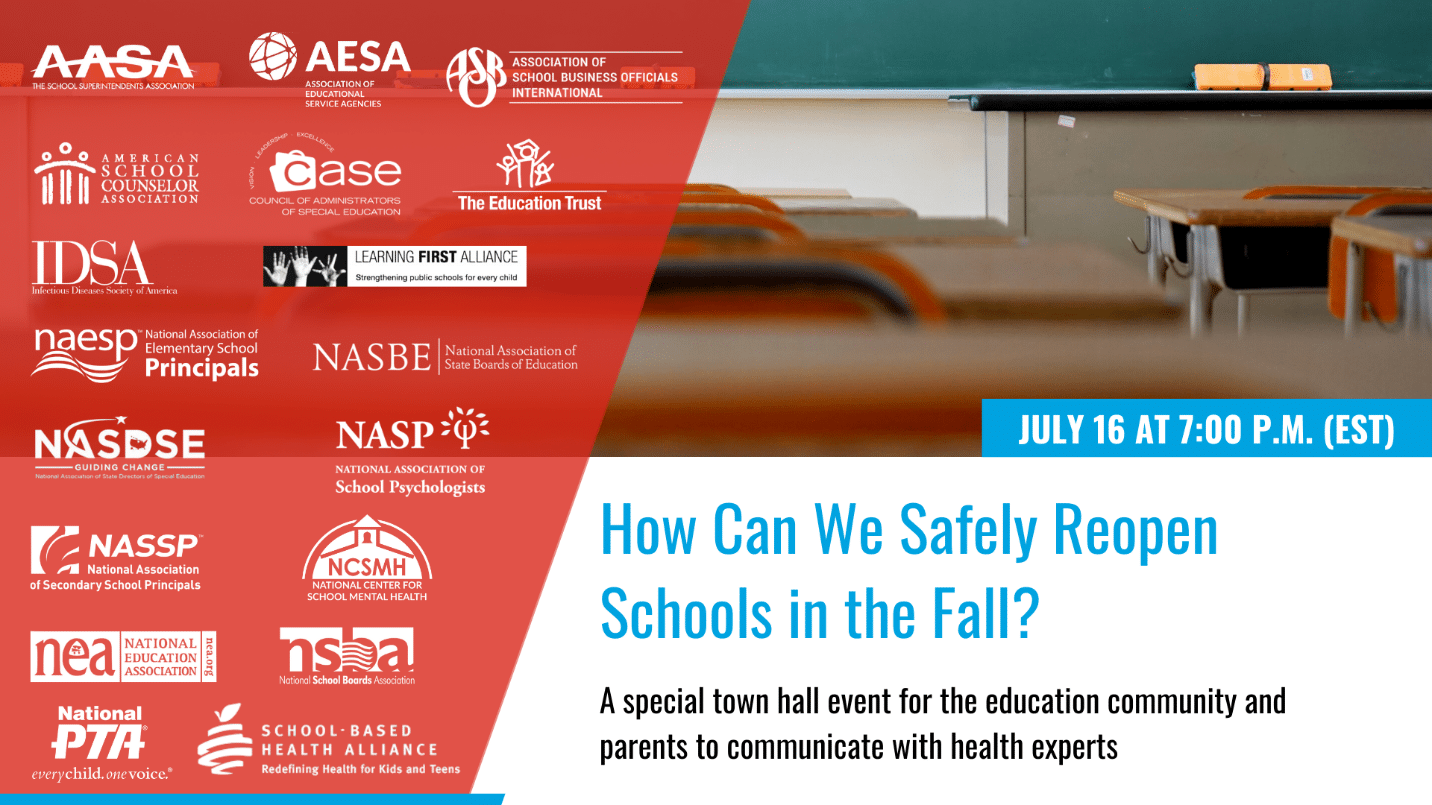
The education community and parents are invited to join a virtual town hall to talk with health experts about the re-opening of schools in the fall. The event, hosted by a group of national education organizations, will take place Thursday, July 16 from 7:00 – 8:15 p.m. ET.
When COVID-19 began its slow spread across the country, schools in every state shut their doors to help flatten the curve—and they stayed closed for in-person instruction through the rest of the 2019–20 school year. While businesses and other industries are beginning to reopen, it’s clear that the economy relies on our public education system for true recovery.
13 Jul2020
By Jane E. West
This blog post is written by AACTE consultant Jane West and is intended to provide updated information. The views expressed in this post do not necessarily reflect the views of AACTE.
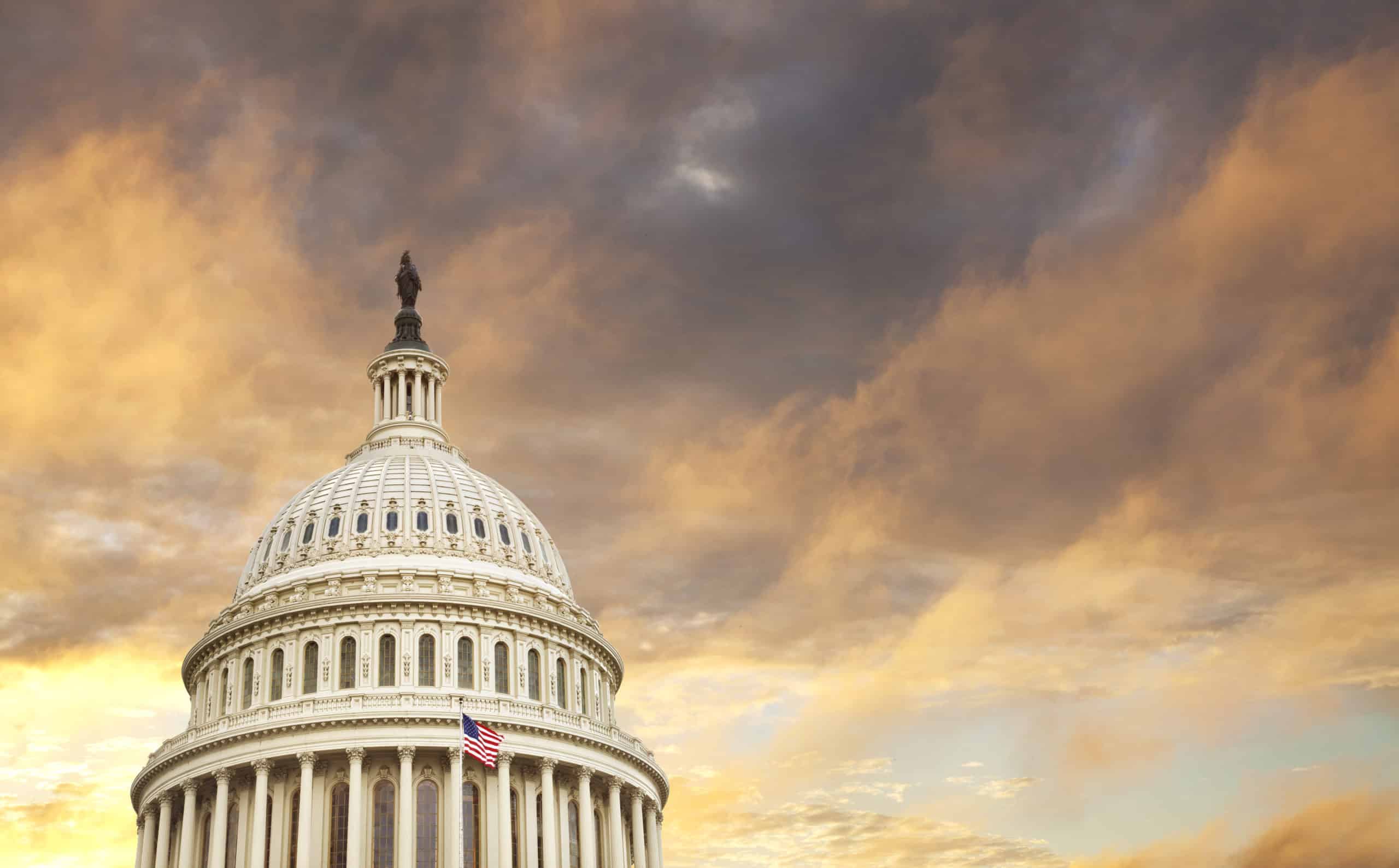
It’s been a busy — if not dizzying — week in DC – from movement on funding bills in the House to Trump Administration threats to withhold education funding and withdraw non-profit tax status from schools that do not fully open in the fall. The rest of July will likewise be action packed and fraught as Congress sprints to the August recess.
House Appropriations Subcommittee Adopts Education Funding Bill for FY 2021
On Tuesday, the House Subcommittee on Labor/HHS/Education Appropriations, chaired by Rep. Rosa DeLauro (D-CT), adopted a spending bill for FY 2021, which begins October 1.
Because the bill was required to stay within previously agreed upon budget caps, there were only modest increases for education. Overall, education spending was increased by 1.7%, or $1.2 billion, bringing federal education spending to a total of $73.5 billion.
 In early spring of 2020, AACTE joined ISTE’s LearningKeepsGoing Coalition. The Coalition subcommittees include Higher Education, of which I co-chair along with AACTE Innovation and Technology Committee Co-Chair David Slykhuis.
In early spring of 2020, AACTE joined ISTE’s LearningKeepsGoing Coalition. The Coalition subcommittees include Higher Education, of which I co-chair along with AACTE Innovation and Technology Committee Co-Chair David Slykhuis.








 The Department of Education has awarded 23 grants administered as a of part of a pool of funding created to benefit programs including the Teaching Quality Partnership Program (TQP). Of the 10 grants awarded under Teacher Quality Partnerships program—totaling $7.3 million—six of the grantees are AACTE members.
The Department of Education has awarded 23 grants administered as a of part of a pool of funding created to benefit programs including the Teaching Quality Partnership Program (TQP). Of the 10 grants awarded under Teacher Quality Partnerships program—totaling $7.3 million—six of the grantees are AACTE members. The American Association of Colleges for Teacher Education (AACTE) released today its latest issue brief,
The American Association of Colleges for Teacher Education (AACTE) released today its latest issue brief, 
 There is a growing body of research suggesting that concerns about compensation generally—and about being able to repay student loans in particular—are dissuading college students from choosing teaching as a career. These financial concerns have only been exacerbated by COVID-19 and its attendant financial crisis.
There is a growing body of research suggesting that concerns about compensation generally—and about being able to repay student loans in particular—are dissuading college students from choosing teaching as a career. These financial concerns have only been exacerbated by COVID-19 and its attendant financial crisis.



 The following article is Part 2 of an article by AACTE member Alex Cuenca in which he highlights the tensions involved in continuing student teaching in the fall and shares a guidepost for educator preparation programs during the COVID-19 pandemic.
The following article is Part 2 of an article by AACTE member Alex Cuenca in which he highlights the tensions involved in continuing student teaching in the fall and shares a guidepost for educator preparation programs during the COVID-19 pandemic. 

